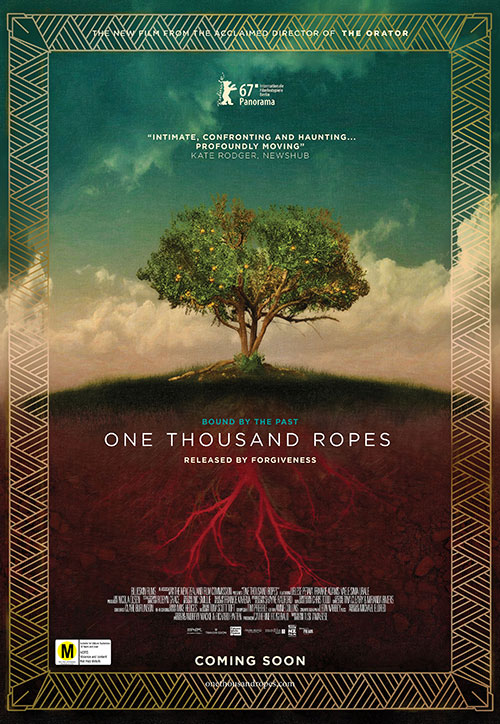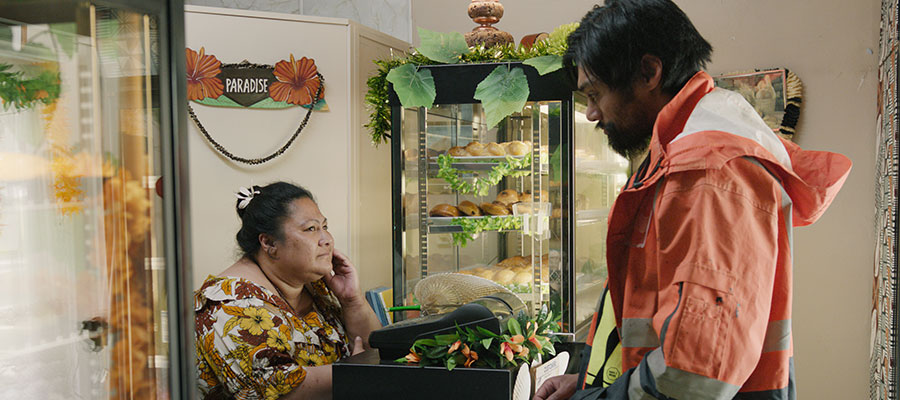Saturday night just gone I managed to sneak out for a rare date night with hubby, to see One Thousand Ropes. Tusi Tamasese’s much anticipated second film was a stark contrast to our usual “date night” choices of Marvel characters and romcoms. Dark and foreboding, this tale was far closer to home - yet still a tale of love and everyday superheroes.
The experience of the movie began in the foyer of the cinema, riding up the escalator I could hear the unmistakeable cackle of Sāmoan laughter and on reaching the top I felt immediately at home seeing multigenerational family groups jostling for their popcorn and choc-tops. In Christchurch, where the Sāmoan population sits at around 4000, we were definitely statistically over-represented in that theatre. Outside of Samoa, the last time I remember a similar scene was when I went to see Sister Act 2 in Manukau City. It was this show of support from our community, which proved that there is a great sense of pride in the work of Tusi Tamasese.
Like Tamasese’s first movie The Orator, the majority of the movie is in Gagana Samoa with English subtitles. This has been no obstacle to success, after rave reviews in the Berlin Film Festival. As always there are moments when things are lost in translation, and moments where there is a nod to very Sāmoan humour. But don’t be like the couple who walked out after ten minutes, I would definitely recommend sitting through it. Wedged between my Māori husband and another non-Sāmoan I could see they were equally enthralled in the story. The fact that our movie snacks remained uneaten throughout the movie is always a good measure of the quality of the film.
One Thousand Ropes follows Maea, played by Uelese Petaia (you might remember him from the screen adaption of Albert Wendt’s Sons for the Return Home), who serves his community as a fa’atosaga (Samoan for midwife) and a baker whipping up the dough for keke pua’a (pork buns), pani popo, and German buns. Living a seemingly quiet existence, Maea is still haunted by his renounced violent past and an actual aitu or ghost – Seipua, who is played by Sima Urale. When his estranged daughter Ilisa (played by Frankie Adams) arrives suddenly on his doorstep she asks why he allows this aitu to stay, and he replies that as he has no wife, she keeps him company. The supernatural world is very much a part of our culture, and seeing Seipua hunched and wheezing in the corner of the living room, brought back very vivid memories of stories my mother would tell me as a child.
For me as a New Zealand born Samoan, Maea represented the beauty and the darkness that our older generation often carry with them. The shadows of domestic violence, our attitudes around childbirth out of wedlock, postnatal depression, abuse, and alcoholism have turned the indigenous knowledge and some of our most celebrated traditional practices into very heavy burdens for Maea. These themes weighed heavy on my mind all weekend as I tried to process this thought-provoking, and powerful piece. But on reflection, I realised that it was through the straddling of both the Western world and the Sāmoan world, and the guidance of her father that both young Ilisa and Maea find their strength.
How much will you identify with this movie? What will you see? Whatever it is you take from this tale, it is definitely one you can’t miss.
Relevant Samoan resources in our collection
- Samoan medical belief and practice
- Su'esu'e Manogi: In Search of Fragrance : Tui Atua Tupua Tamasese Ta'isi and the Samoan Indigenous Reference
- Samoa (DVD)
- Whispers and vanities: Samoan indigenous knowledge and religion
- Fāgogo: Fables from Samoa in Samoan and English
Samoan Language Week 2017 runs from Sunday 28 May to Saturday 3 June.




Add a comment to: One thousand ropes